Live Images
The easiest way to try it out is with a live image booted off a USB disk. Docker images also provide a quick and easy way to test Plasma.
Download live images with Plasma Download Docker images with PlasmaPlasma 5.21 is all about upgrading the looks and usability of Plasma.
Tuesday, 16 February 2021
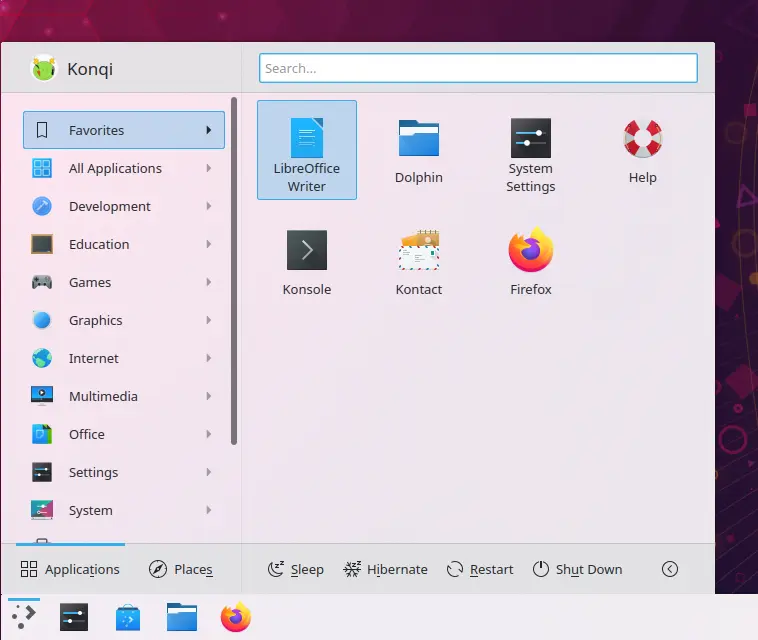
Find, reach and run your apps faster and easier than ever with Plasma's new app launcher.
The new launcher features two panes to make it simple to locate your programs and comes with improved keyboard, mouse, and touch input, boosting accessibility across the board.
Support for languages with right-to-left writing (such as Japanese and Arabic) has also improved. We have also included an alphabetical "All Applications" view, a grid view for your favorite tools, and placed all the power actions ("Sleep", "Restart", "Shut Down", etc.) at the bottom of the launcher pop-up so they are always visible and available.
Last but not least, we have fixed most of the bugs reported by users, guaranteeing a smoother access to all your stuff.
If you prefer the old Kickoff app launcher however, it is only few clicks away in KDE's software store.

Continuing with improvements to the look and feel, applications using Plasma's default theme now have a refreshed color scheme and sport a brand new unified headerbar style with a clean, cool new look.
Meet Breeze Twilight: a combination of a dark theme for Plasma and a light theme for applications, so you can enjoy the best of both worlds. Find it in the Global Theme section of your Settings
Plasma System Monitor is a brand new app for monitoring system resources and is now an integral part of Plasma.
Plasma System Monitor provides a wide variety of different views, offering an overview page with information on important core resources, such as memory, disk space, network and CPU usage. It also provides a quick view of the applications consuming the most resources. This lets you easily locate and zap applications or processes that are slowing your computer down.
If you need more details, the Applications page shows you all the running applications along with detailed statistics and graphs. A process page is also available for per-process information, and History shows the evolution of the use of your machine's resources over time.
Finally, you can also create your own new customized pages using the page editor. This lets you tailor the information you get from your system to your needs.
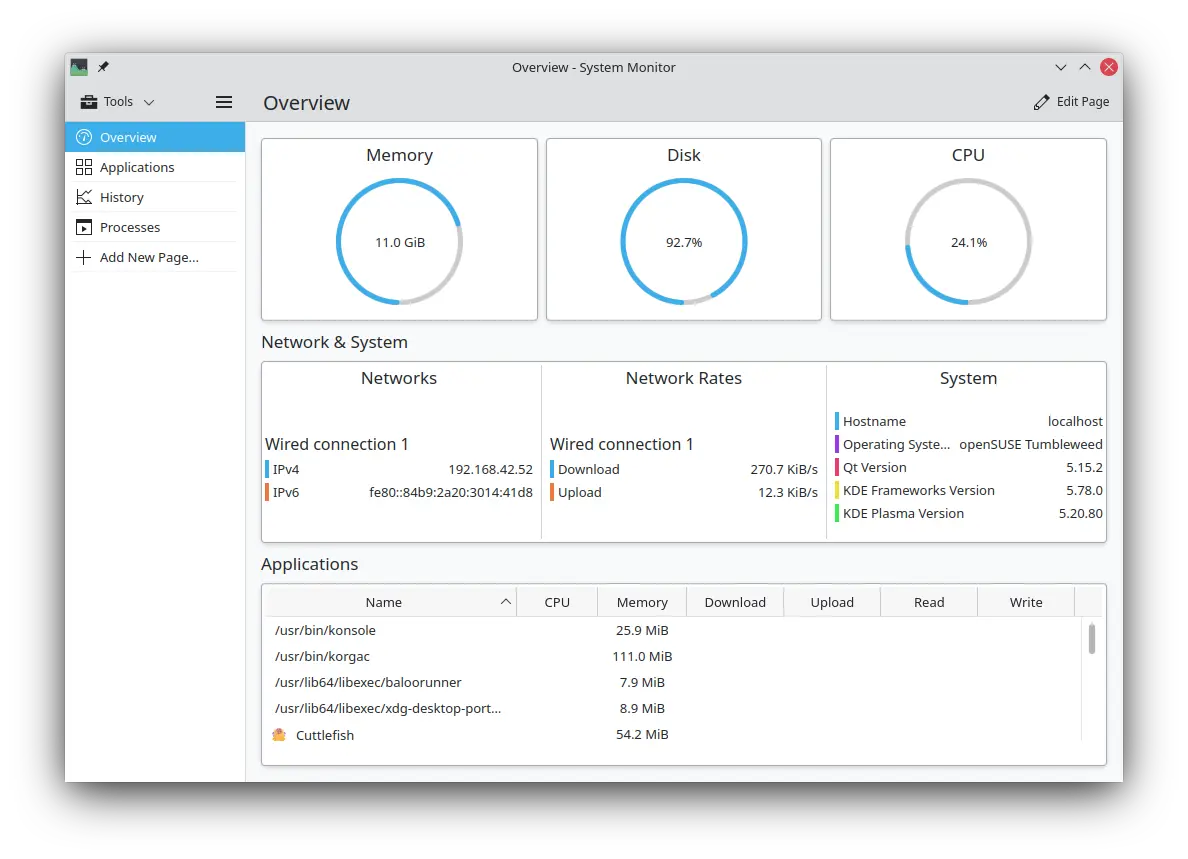
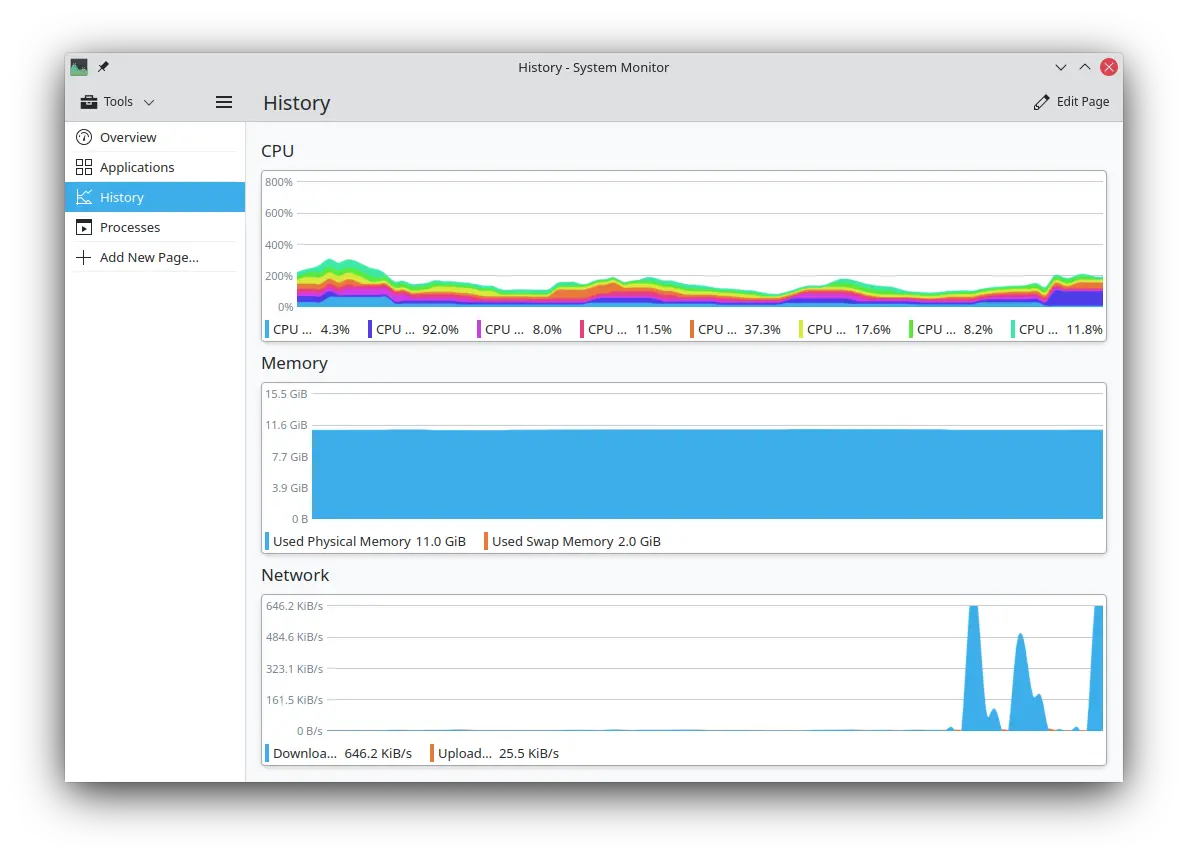
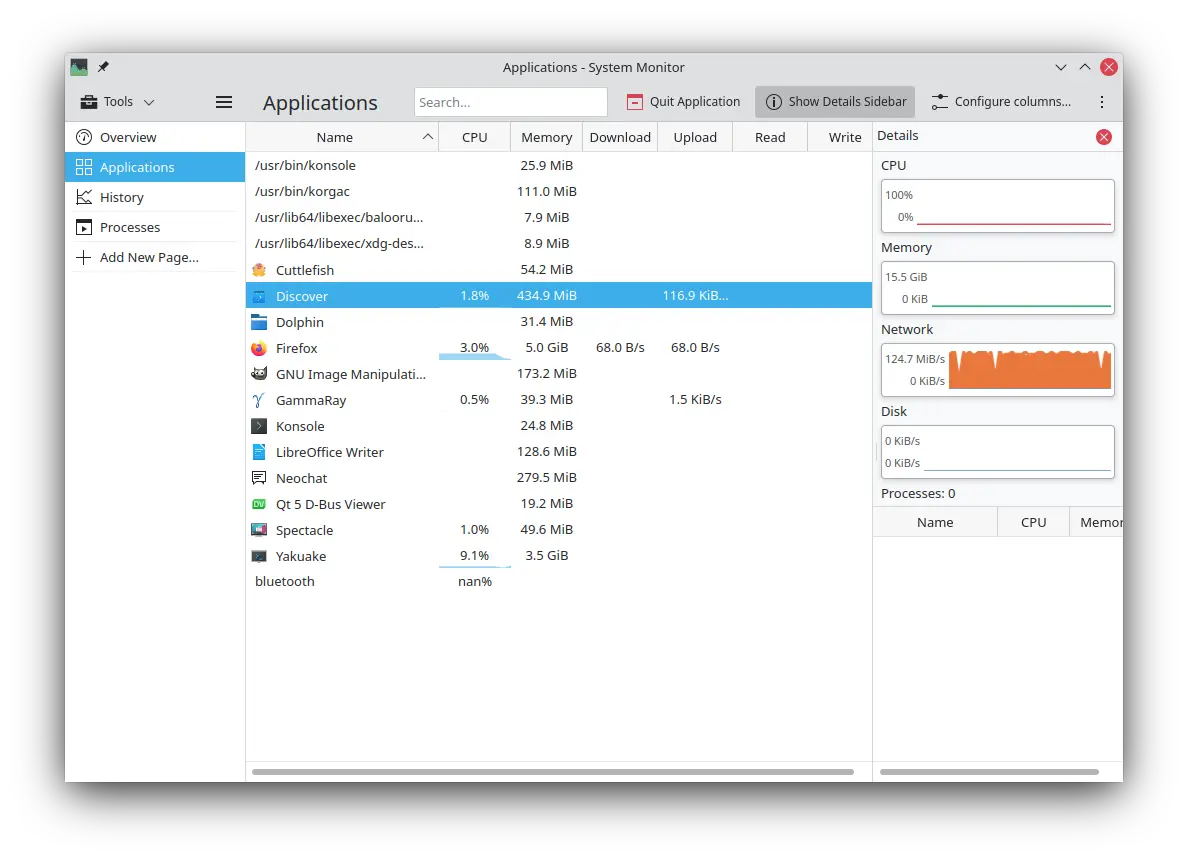
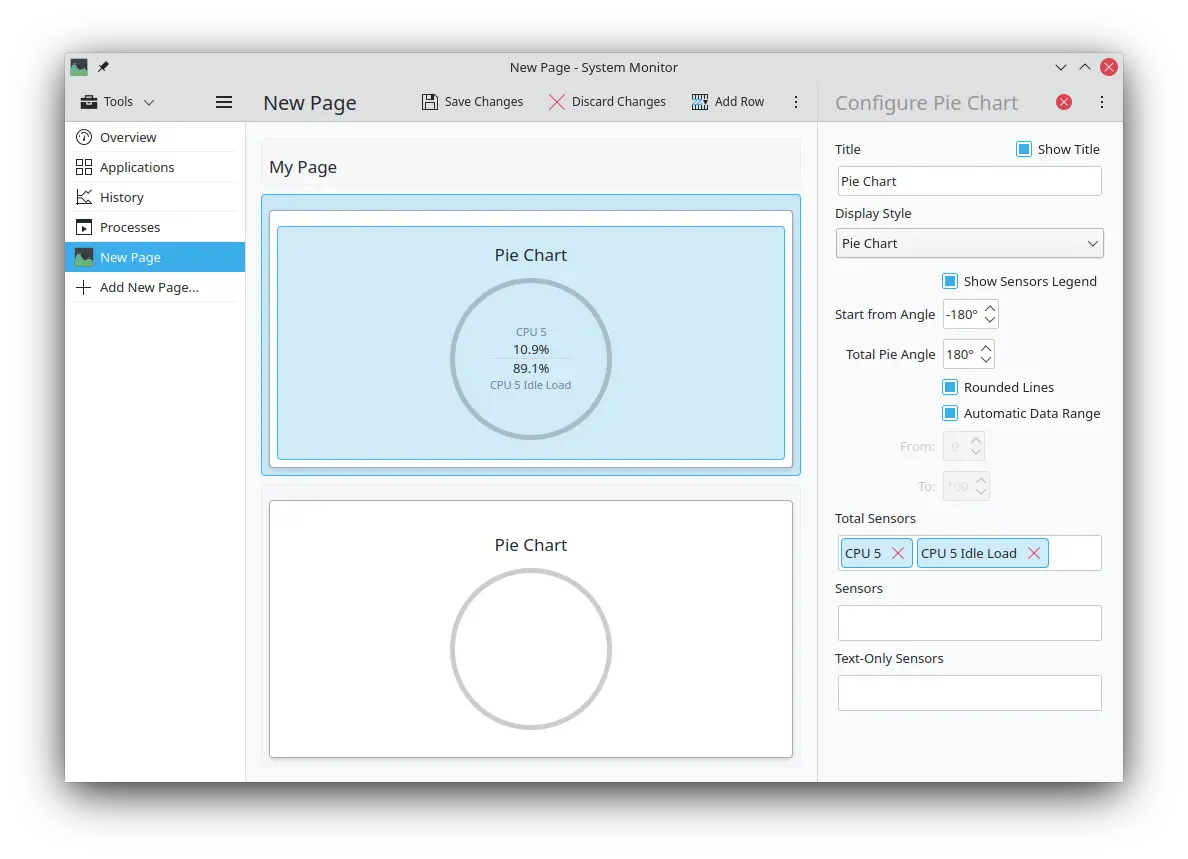
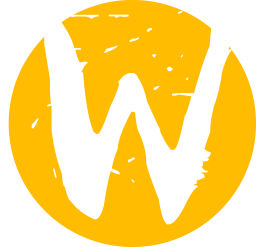
KDE is pushing to have first class support for Wayland, and Plasma 5.21 makes massive progress towards reaching that goal.
We have extensively refactored the compositing code in KWin and the changes should reduce latency throughout all compositing operations. We have also added a control in the compositing settings so you can choose whether you prefer lower latency or smoother animations.
In addition, we have also added support for mixed-refresh-rate display setups on Wayland, e.g. you can have one screen refreshing at 144Hz and another at 60Hz, which is ideal for improving work-stations with multiple monitors. Preliminary support for multiple GPUs was also added on Wayland.
The virtual keyboard in Wayland has been improved and now supports GTK
applications using the text-input-v3 protocol. The support for graphical tablets has
also been improved and now includes all the controls that were missing in the
previous version, such as pad ring and pad buttons.
Apart from the numerous improvements in stability, there are quite a few Plasma components that are getting much better support in Wayland. KRunner, for example, is now able to list all open windows in Wayland, a new component in the panel's system tray informs you of the keyboard layout, and we now support features required for GTK 4, so all GTK 4 applications will now work.
Plasma 5.21 brings a new page to System Settings: the Plasma Firewall settings. This configuration module lets you set up and configure a firewall for your system.
A firewall can help you protect your system from intrusion from outside or block information you want to keep private from leaving your machine. Plasma 5.21 provides a simplified way of configuring both UFW and firewalld, two of the most used firewall systems in Linux.
Multiple pre-existing configuration pages have been completely rewritten and are now cleaner and easier to use. This has been the case for the Accessibility, Desktop Session and SDDM configuration modules.
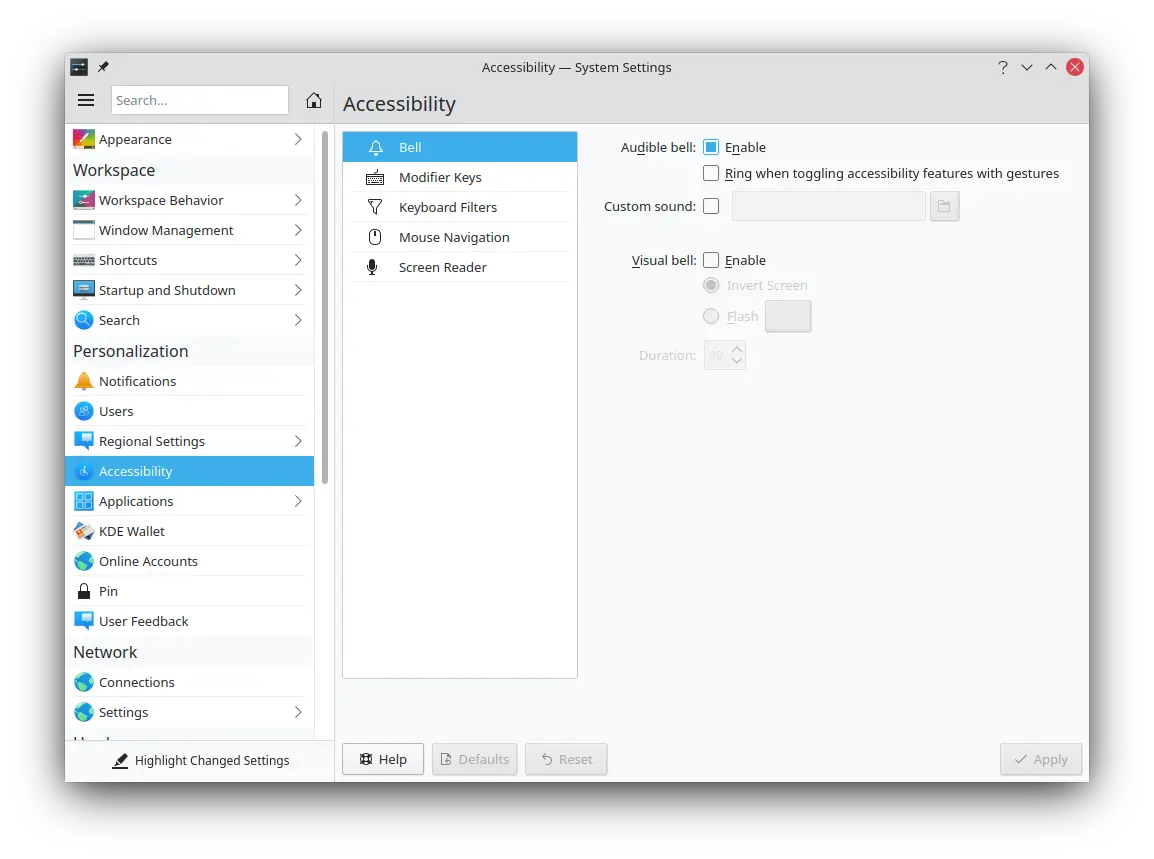
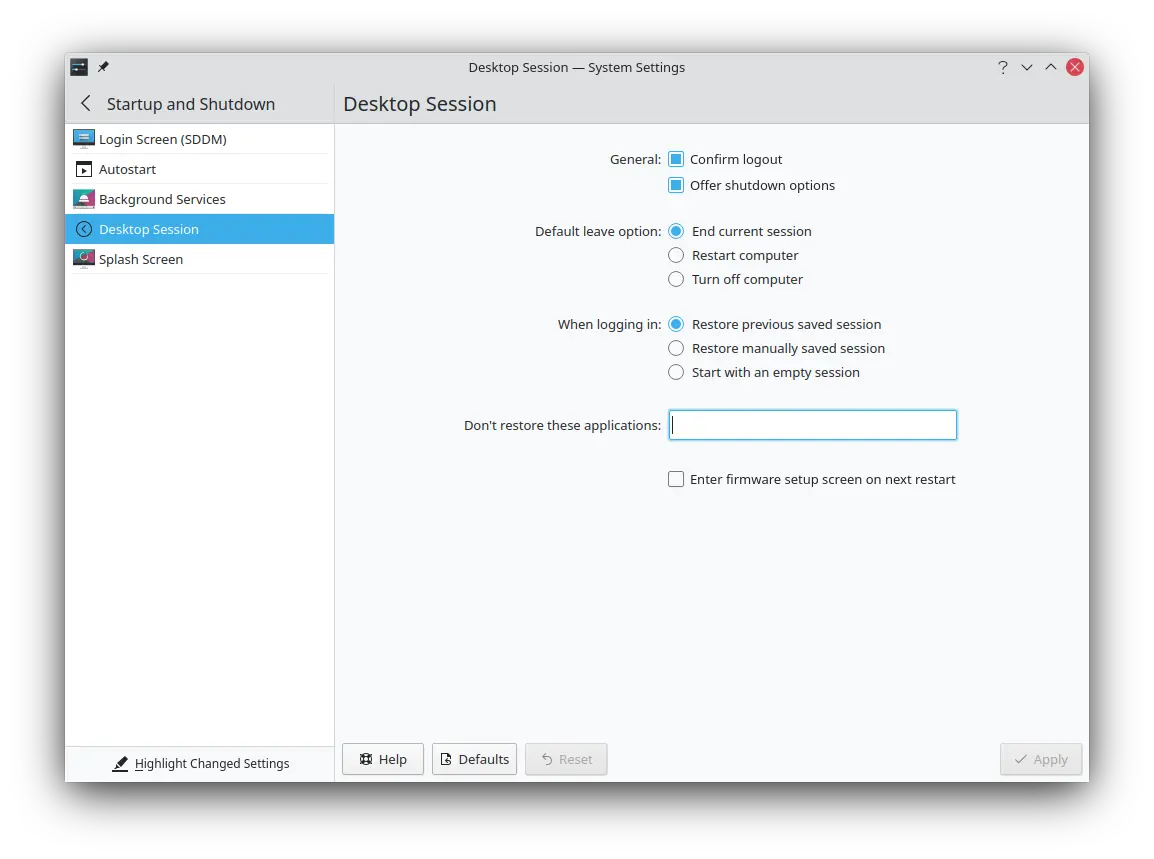
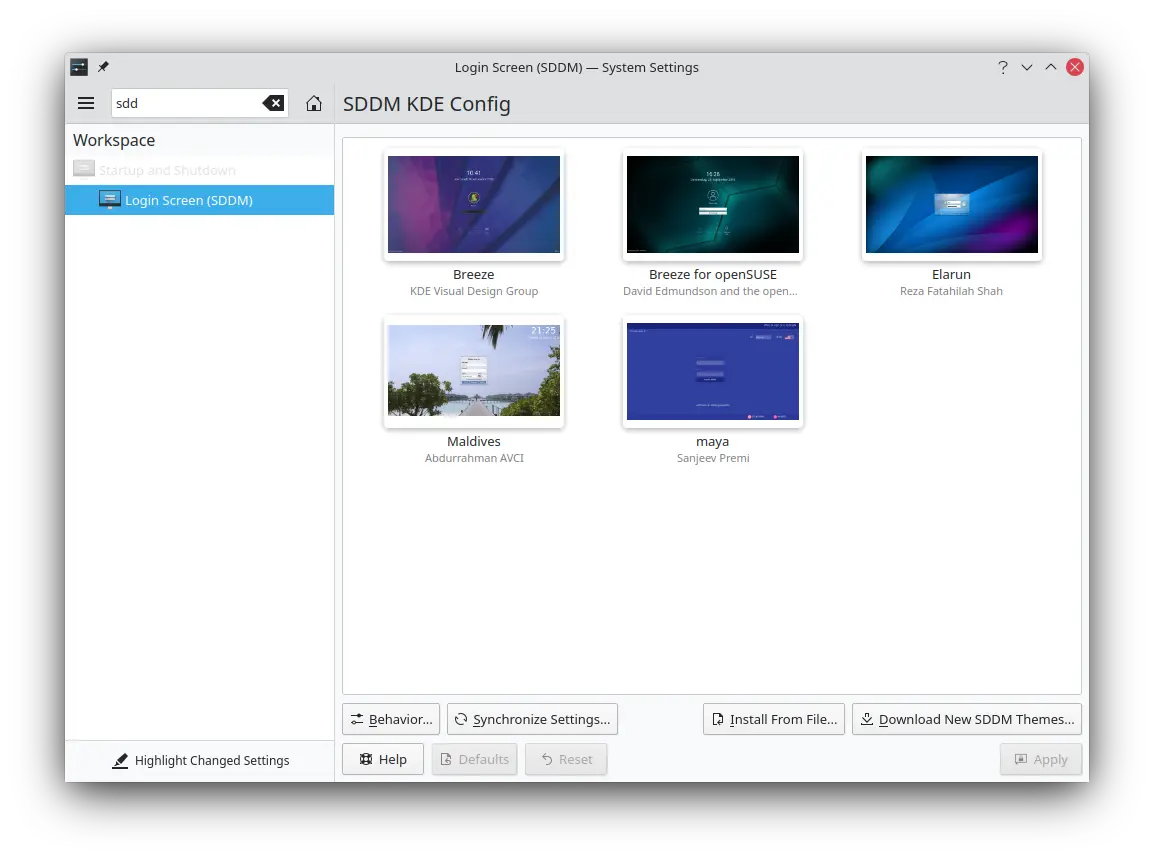
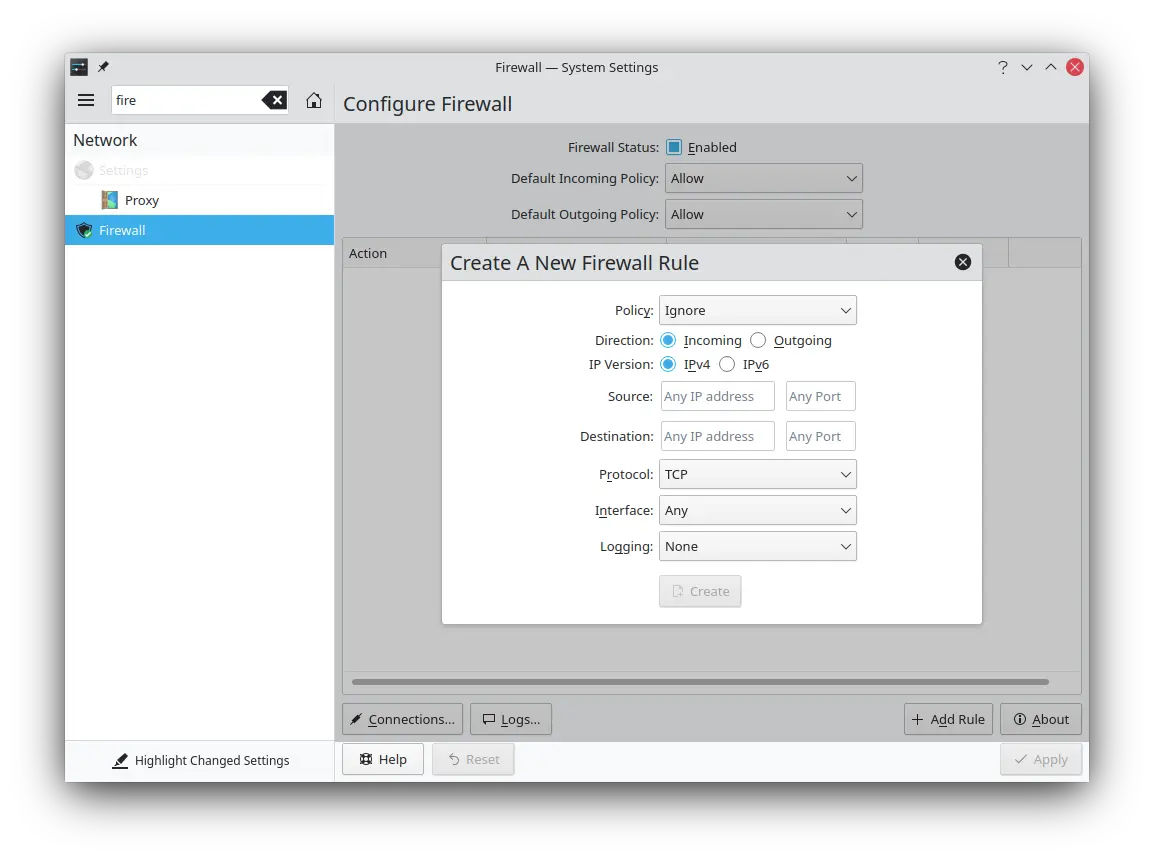
The Media Player widget's layout has been improved and now includes the list of applications currently playing music in the header as a tab bar. Another upgrade is that the album cover now takes up the whole width of the widget.

Plasma has always been designed to adapt to all types of screens. It can work on a desktop but it's also easily adaptable to work on a mobile, tablet or anything in between. In Plasma 5.21 we are adding two new components for mobile in the official release.
The Plasma Phone Components contains the mobile shell but also specific Plasma widgets adapted for Plasma Mobile.
QQC2 Breeze Style is a pure Qt Quick Controls 2 style. It visually fits in with the widget based desktop Breeze theme and was optimized for lower RAM and GPU usage.
If you would like to learn more, check out the the full changelog for Plasma 5.21.
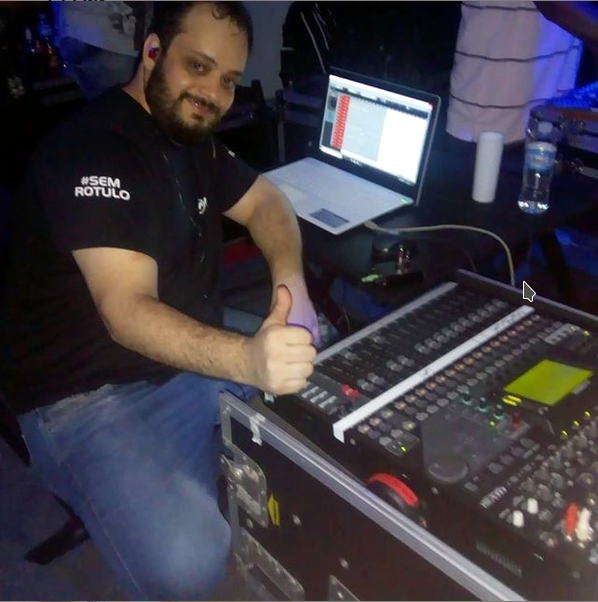
Gustavo doing what he liked to do best: tinkering with tech.
Plasma 5.21 is dedicated to Gustavo Carneiro, a KDE contributor from Brazil that left us in January victim of COVID-19.
KDE was Gustavo's first free software experience, and he embraced it. Although he did not start out as a C++ developer, he worked hard to learn and improve the systems that he was using.
Among many other things, Gustavo became a major contributor to KDE's terminal emulator, Konsole, and went on to develop technologies some of which are so new, they have not even been released yet.
Now his legacy lives on within Konsole.
Gustavo, thank you for your help.
The easiest way to try it out is with a live image booted off a USB disk. Docker images also provide a quick and easy way to test Plasma.
Download live images with Plasma Download Docker images with PlasmaDistributions have created, or are in the process of creating, packages listed on our wiki page.
Note that packages of this release might not be available on all distributions at the time of this announcement.
Package download wiki pageYou can install Plasma directly from source.
Community instructions to compile it Source Info PageYou can give us feedback and get updates on our social media channels:
Discuss KDE on the KDE Forums.
You can provide feedback direct to the developers via the #Plasma Matrix channel, Plasma-devel mailing list or report issues via Bugzilla. If you like what the team is doing, please let them know!
Your feedback is greatly appreciated.
KDE is a Free Software community that exists and grows only because of the help of many volunteers that donate their time and effort. KDE is always looking for new volunteers and contributions, whether it is help with coding, bug fixing or reporting, writing documentation, translations, promotion, money, etc. All contributions are gratefully appreciated and eagerly accepted. Please read through the Supporting KDE page for further information or become a KDE e.V. supporting member through our Join the Game initiative.
KDE is an international technology team that creates free and open source software for desktop and portable computing. Among KDE’s products are a modern desktop system for Linux and UNIX platforms, comprehensive office productivity and groupware suites and hundreds of software titles in many categories including Internet and web applications, multimedia, entertainment, educational, graphics and software development. KDE software is translated into more than 60 languages and is built with ease of use and modern accessibility principles in mind. KDE’s full-featured applications run natively on Linux, BSD, Windows, Haiku, and macOS.
Trademark Notices.
KDE® and the K Desktop Environment® logo are registered trademarks of KDE e.V..
Linux is a registered trademark of Linus Torvalds. UNIX is a registered trademark of The Open Group in the United States and other countries.
All other trademarks and copyrights referred to in this announcement are the property of their respective owners.
For more information send us an email: press@kde.org